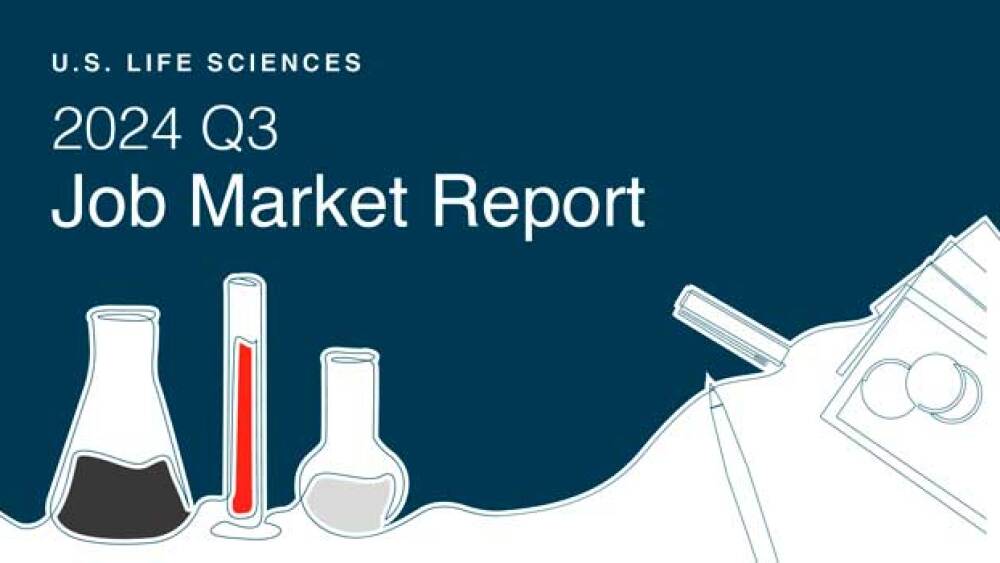Clovis Oncology, Inc. (NASDAQ: CLVS) today announced that the European Union’s (EU) European Medicines Agency (EMA) Committee for Medicinal Products for Human Use (CHMP) has adopted a positive opinion recommending an additional indication to include rucaparib as monotherapy
BOULDER, Colo.--(BUSINESS WIRE)-- Clovis Oncology, Inc. (NASDAQ: CLVS) today announced that the European Union’s (EU) European Medicines Agency (EMA) Committee for Medicinal Products for Human Use (CHMP) has adopted a positive opinion recommending an additional indication to include rucaparib as monotherapy for the maintenance treatment of adult patients with platinum-sensitive relapsed high-grade epithelial ovarian, fallopian tube, or primary peritoneal cancer who are in response (complete or partial) to platinum-based chemotherapy. EC approval is anticipated in the first quarter of 2019.
Once approved, Rubraca’s indication will expand beyond its initial Marketing Authorization in Europe granted in May 2018 for adult patients with platinum-sensitive, relapsed or progressive, BRCA mutated (germline and/or somatic), high-grade epithelial ovarian, fallopian tube, or primary peritoneal cancer, who have been treated with two or more prior lines of platinum-based chemotherapy, and who are unable to tolerate further platinum-based chemotherapy.
The CHMP’s positive opinion for this additional indication was based on data from the phase 3 ARIEL3 clinical trial, which found that rucaparib significantly improved progression-free survival in all ovarian cancer patient populations studied.i
“The CHMP recommendation represents an important step forward for women with recurrent ovarian cancer, for whom additional treatment options are needed. The ARIEL3 trial demonstrated rucaparib to be effective across all patient types, regardless of their BRCA mutation status, and is the only PARP-inhibitor trial in which independent radiological review reported a median progression-free survival of more than one year across the entire population studied,” said Professor Jonathan Ledermann, MD, Professor of Medical Oncology, UCL Cancer Institute and UCL Hospitals, London, global Principal Investigator for non-US sites in the ARIEL3 study. “The meaningful efficacy data and tolerable safety profile offers women diagnosed with relapsed ovarian cancer a new therapy option.”
Ovarian cancer is the sixth deadliest cancer amongst women in Europe, where more than 65,000 women are diagnosed annually.ii Ovarian cancer is challenging to treat, and most women will relapse after surgery and chemotherapy. The 80 to 85 percent of women diagnosed in the later stages of the disease (III and IV) have particularly poor outcomes.iii
“We are pleased that the CHMP recognizes the clinical relevance of rucaparib in the maintenance treatment setting for European women with relapsed platinum-sensitive ovarian cancer,” said Patrick J. Mahaffy, President and CEO of Clovis Oncology. “This brings us a step closer to delivering on our commitment to ensure that women who may benefit from treatment with rucaparib have the opportunity to do so. We seek to make ovarian cancer an actively managed disease, rather than one that is treated and then wait for recurrence. Rucaparib’s clinical benefit in the maintenance treatment setting is supported by the pivotal ARIEL3 study, which showed that Rubraca provided benefit in all ovarian cancer patient populations studied.”
About the ARIEL3 Pivotal Study
ARIEL3 is a double-blind, placebo-controlled trial of rucaparib that enrolled 564 women with platinum-sensitive, high-grade ovarian, fallopian tube, or primary peritoneal cancer. The primary efficacy analysis evaluated three prospectively defined molecular sub-groups in a step-down manner: 1) BRCA mutant (BRCAmut+); 2) HRD positive (HRD+) inclusive of BRCA mutant; and finally, 3) the intent-to-treat population, or all patients treated in ARIEL3. The study achieved its primary endpoint of improved PFS by investigator review in each of three populations.
About Rubraca® (rucaparib)
Rubraca is an oral, small molecule inhibitor of PARP1, PARP2 and PARP3 being developed in multiple tumor types, including ovarian, metastatic castration-resistant prostate, and bladder cancers, as monotherapy, and in combination with other anti-cancer agents. Exploratory studies in other tumor types are also underway.
In October 2018, Rubraca was granted Breakthrough Therapy Designation by the FDA as monotherapy treatment of adult patients with BRCA1/2-mutated mCRPC who have received at least one prior androgen receptor (AR)-directed therapy and taxane-based chemotherapy.
Clovis holds worldwide rights for Rubraca. Rubraca is an unlicensed medical product outside of the U.S. and Europe.
Rucaparib EU Authorized Use
Rucaparib is indicated for adult patients with platinum sensitive, relapsed or progressive, BRCA mutated (germline and/or somatic), high-grade epithelial ovarian, fallopian tube, or primary peritoneal cancer, who have been treated with two or more prior lines of platinum-based chemotherapy, and who are unable to tolerate further platinum-based chemotherapy.
Click here to access the current Summary of Product Characteristics. Healthcare professionals should report any suspected adverse reactions via their national reporting systems.
Rucaparib U.S. FDA Approved Indications and Important Safety Information
Rubraca is indicated as monotherapy for the maintenance treatment of adult patients with recurrent epithelial ovarian, fallopian tube, or primary peritoneal cancer who are in a complete or partial response to platinum-based chemotherapy.
Rubraca is indicated as monotherapy for the treatment of adult patients with deleterious BRCA mutation (germline and/or somatic) associated epithelial ovarian, fallopian tube, or primary peritoneal cancer who have been treated with two or more chemotherapies and selected for therapy based on an FDA-approved companion diagnostic for Rubraca.
Select Important Safety Information
Myelodysplastic Syndrome (MDS)/Acute Myeloid Leukemia (AML) occur uncommonly in patients treated with Rubraca and are potentially fatal adverse reactions. In approximately 1100 treated patients, MDS/AML occurred in 12 patients (1.1%), including those in long term follow-up. Of these, 5 occurred during treatment or during the 28-day safety follow-up (0.5%). The duration of Rubraca treatment prior to the diagnosis of MDS/AML ranged from 1 month to approximately 28 months. The cases were typical of secondary MDS/cancer therapy-related AML; in all cases, patients had received previous platinum-containing regimens and/or other DNA damaging agents.
Do not start Rubraca until patients have recovered from hematological toxicity caused by previous chemotherapy (≤ Grade 1).
Monitor complete blood counts for cytopenia at baseline and monthly thereafter for clinically significant changes during treatment. For prolonged hematological toxicities (> 4 weeks), interrupt Rubraca or reduce dose (see Dosage and Administration (2.2) in full Prescribing Information) and monitor blood counts weekly until recovery. If the levels have not recovered to Grade 1 or less after 4 weeks or if MDS/AML is suspected, refer the patient to a hematologist for further investigations, including bone marrow analysis and blood sample for cytogenetics. If MDS/AML is confirmed, discontinue Rubraca.
Based on its mechanism of action and findings from animal studies, Rubraca can cause fetal harm when administered to a pregnant woman. Apprise pregnant women of the potential risk to a fetus. Advise females of reproductive potential to use effective contraception during treatment and for 6 months following the last dose of Rubraca.
Most common adverse reactions in ARIEL3 (≥ 20%; Grade 1-4) were nausea (76%), fatigue/asthenia (73%), abdominal pain/distention (46%), rash (43%), dysgeusia (40%), anemia (39%), AST/ALT elevation (38%), constipation (37%), vomiting (37%), diarrhea (32%), thrombocytopenia (29%), nasopharyngitis/upper respiratory tract infection (29%), stomatitis (28%), decreased appetite (23%), and neutropenia (20%).
Most common laboratory abnormalities in ARIEL3 (≥ 25%; Grade 1-4) were increase in creatinine (98%), decrease in hemoglobin (88%), increase in cholesterol (84%), increase in alanine aminotransferase (ALT) (73%), increase in aspartate aminotransferase (AST) (61%), decrease in platelets (44%), decrease in leukocytes (44%), decrease in neutrophils (38%), increase in alkaline phosphatase (37%), and decrease in lymphocytes (29%).
Most common adverse reactions in Study 10 and ARIEL2 (≥ 20%; Grade 1-4) were nausea (77%), asthenia/fatigue (77%), vomiting (46%), anemia (44%), constipation (40%), dysgeusia (39%), decreased appetite (39%), diarrhea (34%), abdominal pain (32%), dyspnea (21%), and thrombocytopenia (21%).
Most common laboratory abnormalities in Study 10 and ARIEL2 (≥ 35%; Grade 1-4) were increase in creatinine (92%), increase in alanine aminotransferase (ALT) (74%), increase in aspartate aminotransferase (AST) (73%), decrease in hemoglobin (67%), decrease in lymphocytes (45%), increase in cholesterol (40%), decrease in platelets (39%), and decrease in absolute neutrophil count (35%).
Co-administration of rucaparib can increase the systemic exposure of CYP1A2, CYP3A, CYP2C9, or CYP2C19 substrates, which may increase the risk of toxicities of these drugs. Adjust dosage of CYP1A2, CYP3A, CYP2C9, or CYP2C19 substrates, if clinically indicated. If co-administration with warfarin (a CYP2C9 substrate) cannot be avoided, consider increasing frequency of international normalized ratio (INR) monitoring.
Because of the potential for serious adverse reactions in breast-fed children from Rubraca, advise lactating women not to breastfeed during treatment with Rubraca and for 2 weeks after the last dose.
You may report side effects to the FDA at 1-800-FDA-1088 or www.fda.gov/MedWatch. You may also report side effects to Clovis Oncology, Inc. at 1-844-258-7662.
Click here for full Prescribing Information and additional Important Safety Information.
About Clovis Oncology
Clovis Oncology, Inc. is a biopharmaceutical company focused on acquiring, developing and commercializing innovative anti-cancer agents in the U.S., Europe and additional international markets. Clovis Oncology targets development programs at specific subsets of cancer populations, and simultaneously develops, with partners, diagnostic tools intended to direct a compound in development to the population that is most likely to benefit from its use. Clovis Oncology is headquartered in Boulder, Colorado, and has additional offices in San Francisco and Oakland, California and Cambridge, UK. Please visit clovisoncology.com for more information.
To the extent that statements contained in this press release are not descriptions of historical facts regarding Clovis Oncology, they are forward-looking statements reflecting the current beliefs and expectations of management. Examples of forward-looking statements contained in this press release include, among others, statements regarding our expectation of timing for European Commission approval of rucaparib for the maintenance treatment indication. Such forward-looking statements involve substantial risks and uncertainties that could cause our future results, performance or achievements to differ significantly from that expressed or implied by the forward-looking statements. Such risks and uncertainties include, among others, the uncertainties inherent in actions by the FDA, the EMA or other regulatory authorities regarding whether to approve drug applications that may be filed, as well as their decisions that may affect drug labeling, pricing and reimbursement, and other matters that could affect the availability or commercial potential of our drug candidates or companion diagnostics. Clovis Oncology does not undertake to update or revise any forward-looking statements. A further description of risks and uncertainties can be found in Clovis Oncology’s filings with the Securities and Exchange Commission, including its Annual Report on Form 10-K and its reports on Form 10-Q and Form 8-K.
i Coleman RL et al. Rucaparib maintenance treatment for recurrent ovarian carcinoma after response to platinum therapy (ARIEL3): a randomised, double-blind, placebo-controlled, phase 3 trial. Lancet 2017;390:1949-1961.
ii World Health Organization. Globocan 2012: estimated cancer incidence, mortality and prevalence worldwide in 2012. Accessed 23 February 2018.
iii American Cancer Society. Survival rates for ovarian cancer, by stage. https://www.cancer.org/cancer/ovarian-cancer/detection-diagnosis-staging/survival-rates.html
View source version on businesswire.com: https://www.businesswire.com/news/home/20181213005680/en/
Contacts
Clovis Investor Contacts:
Anna Sussman, 303.625.5022
asussman@clovisoncology.com
or
Breanna Burkart, 303.625.5023
bburkart@clovisoncology.com
or
Clovis Media Contacts:
U.S.
Lisa Guiterman, 301.217.9353
clovismedia@sambrown.com
or
Christy Curran, 615.414.8668
clovismedia@sambrown.com
or
EU
Ann Hughes, +44 (0) 7956 700 790
Ann.Hughes@publicisresolute.com
Source: Clovis Oncology, Inc.





